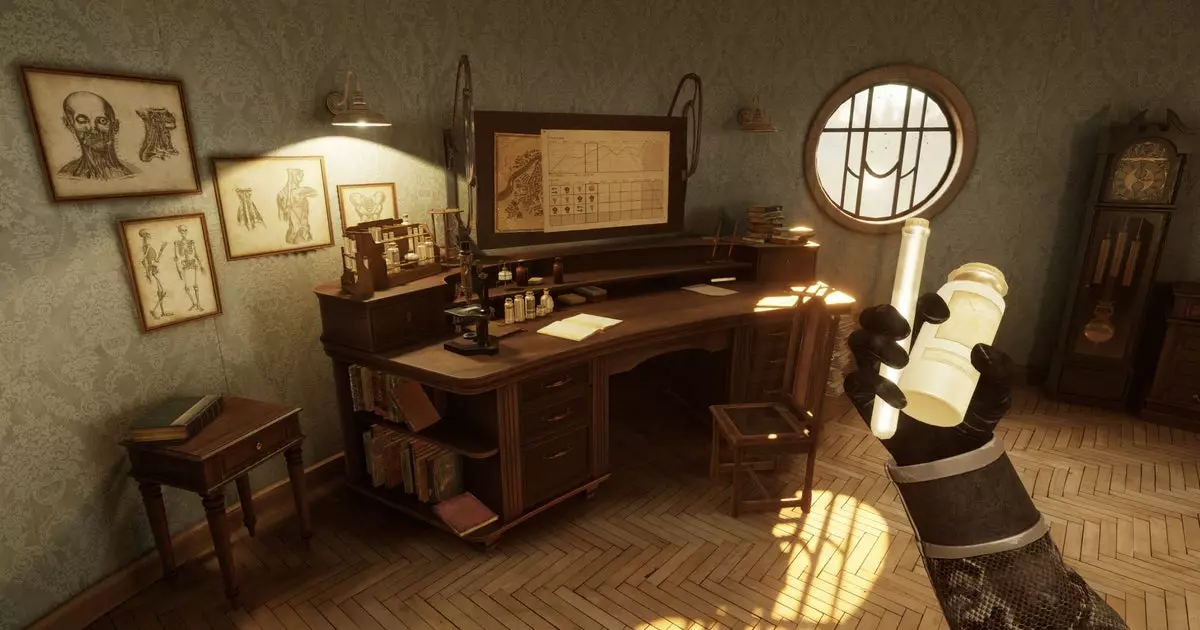In an age dominated by lighthearted, carefree gaming experiences, the Pathologic series stands as a stark outlier—a haunting survival simulator that wraps players in a grim narrative of disease and despair. This chilling ambiance has long intrigued audiences, providing a canvas upon which deep psychological themes are painted with painstaking detail. With the announcement of Pathologic 3, we find ourselves peering into a world where choices resonate across time, stirring the long-standing dichotomy between player freedom and narrative determinism.
The game developers at Ice Pick Lodge are opting for a bold new mechanic: time travel will weave its way through the already complex tapestry of the game. Unlike the whimsical representations of time-travel commonly seen in mainstream titles, here it takes on a serious tone, invoking elements reminiscent of Rashomon. Players will experience simultaneous realities, each being shaped by the decisions they made in the past, a concept that adds a deeply philosophical layer to the gameplay. How do our actions impact the lives of the townspeople? Potentially, this question will drive the narrative and infuse the experience with unprecedented depth.
Moreover, the reimagined role of the Bachelor—a doctor with a penchant for Latin quotes—signals a shift in perspective. He’s not just another faceless survivor; he brings expertise, authority, and perhaps even arrogance to the equation. With his toolkit of laboratory equipment and research capabilities, engaging in micro-level exploration of pathogens hints at sophisticated gameplay entwined with strategic resource management. The emphasis on quarantines and patrols may evoke the horrors of monitoring societal health during times of crisis, a relevant theme now more than ever.
The management aspects touted by the developers promise to enrich gameplay, allowing players to implement quarantine measures and dispatch patrols. This injects a layer of authority into the narrative that asks questions about moral responsibility versus survival instinct. How do tough decisions affect the fates of others? The implications could incite moral quandaries that stick with players long after they set down the controller.
As players navigate their path in this plague-ridden town, the oppressive time limit of twelve days remains—a constant reminder of the urgency of their actions. Yet, with the enhanced ability to rewind time and alter decisions dynamically, players may find themselves embroiled in a constantly shifting landscape of choices. This shift is not merely an aesthetic update but an invitation to explore the tapestry of interconnected lives that define the game’s universe.
It’s essential to note that while the title Pathologic 3 suggests a direct continuation of the story, the reality is more nuanced. Pathologic 2 previously redefined the original narrative, with a focused storytelling strategy that saw the Haruspex take the lead. With this development, the narrative web will surely grow more intricate, exploring paths less traveled by past protagonists.
This brings the question: will fans expect multiple purchases to explore the full scope of stories? As cynical as it may sound, the structure of sequels today leaves many uncertain about what they’ll truly receive. The dialogue around sequels often leads to debates about the development cycle and monetization strategies in gaming, and Pathologic 3 seems caught in that crossfire.
My original assessment of Pathologic 2 was mired in frustration—mechanics that felt cumbersome, immersion lost within an avalanche of survival metrics. Yet, I recognized that the more recent updates created avenues for an enjoyable experience, fostering an unexpected but delightful engagement with the game’s unsettling universe. The ensuing conversations surrounding its bleakness bred passionate defenders and critical detractors alike, showcasing the polarizing nature of this franchise.
Will Pathologic 3 challenge my initial reservations? Will it transcend the confines of its predecessors and strike a deeper chord in its audience? As the release date looms, excitement surges, but curiosity reigns supreme. The evolving narrative and its morally ambiguous playground beckon players seeking both challenge and introspection. In a world that celebrates light as often as it fears darkness, Pathologic stands as an enduring testament to the thrilling, albeit unsettling, potential of interactive storytelling.

